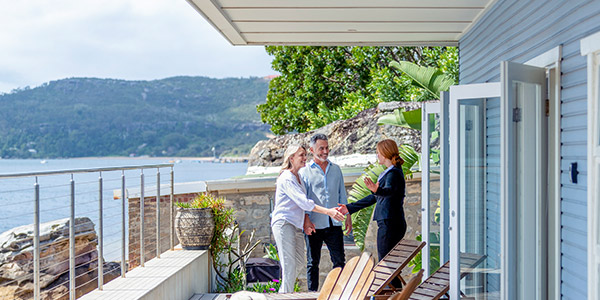Homebuyers
Things to Know Before Buying a Vacation Home, Part 1
July 27, 2016
We all dream about purchasing that gorgeous second home in the mountains, on the beach or way out in the countryside. A vacation home, after all, is a great way to ensure infinite good times with our friends and family for years to come.
The idea of a place that is wholly our own, where we can retreat from the stresses of daily life, is certainly appealing, and buying a vacation home can be a great decision. That is, as long as you are in a position to do so. If you are seriously considering investing in a vacation home, there are a few things you should be clear on before you officially decide to make the purchase:
1. Additional Costs
A vacation home is accompanied by far more costs than just the price of a mortgage. Don't forget you will be responsible for taking care of every other cost associated with owning a home, including but not limited to:
- The down payment
- Monthly mortgage payments
- Maintenance
- Furnishing
- Utilities
- Taxes
- Insurance
- Homeowners association fees, if applicable
- A solid security system, since your home might be vacant for long periods
These costs are effective year-round, regardless of how much time you spend there, so make sure you can afford to take all of this on.
In addition, you will probably need to hire a local property manager to take care of the home when you're not there. Otherwise, maintenance issues could persist for months and continue to get worse before anyone notices.
Homeowners insurance is generally more expensive for a vacation home.
Something else to keep in mind is that homeowners insurance is generally more expensive for a vacation home. This is because vacation properties tend to be located in places more susceptible to damage from events like floods and wildfires. If your property is in a flood zone, you will also have to purchase mandatory flood insurance, as standard homeowners insurance does not cover flood damage. If you are going to rent out your property when you're not using it, you will also need to pay for more coverage.
Another reason homeowners insurance is more expensive for vacation properties is that they remain empty for long periods and thus have a higher risk of vandalism, theft, and undiscovered damage. Also, if you have a pool or other amenity that increases an occupant's risk of injury, expect your homeowner's insurance premium to rise.1
2. Tax Differences
In addition to property taxes, there may be some additional taxes you will need to pay on a vacation home. To start, if you ever decide to sell the property, any profits you make will be subject to a capital gains tax unless you make the home your primary residence for two or more years before the sale.
Whether you rent out your property (and for how long) also affects your taxes. If you rent the property for 15 or more days each year, the rent you earn will be considered income by the IRS. Fortunately, you will be eligible to claim deductions for things like repairs, maintenance, travel expenses to perform the maintenance, and management fees.2 Depending on what state or county the home is in, you may have to pay a sales or lodging tax on that rent as well, as certain places will treat your rental property the same way they would a hotel.3
One great tax break for vacation homeowners: You will still be able to receive a mortgage interest deduction on a combined debt for your first and second home of up to $1.1 million.
Be sure to consult your tax advisor for details.
If you own a vacation home, there may be times you have to put off relaxing to take care of maintenance issues.
3. The Popularity of the Area
You may be depending on earning rental income to help you pay off the mortgage on your vacation home. If so, make sure you purchase a property in a tourist area where demand for temporary lodging is high. Otherwise, you may find yourself experiencing several dry spells and long periods when no one is paying rent.
If you need the money from renters, remember that the most popular times for renters (i.e. holidays and other long breaks) will also probably be the times when you want to use the home. You may need to make some sacrifices and allow renters to use the property first if you are going to rely on the income.4
One more thing to keep in mind: Some condo and homeowner's associations prohibit owners from using their vacation homes as rental properties, so make sure you check the rules for your property before making anything official.
4. The Distance From Your Primary Home to Your Vacation Home
If getting to your vacation home requires a long, complicated journey, your likelihood of using it regularly decreases substantially. You want to make sure you get enough use out of this home to make the investment worth it, so take the travel time into account when deciding whether or not to buy.
While these four factors are a great place to start, there are still a few more vital considerations to take before deciding to buy a vacation home. At New American Funding, we can walk you through every detail of the process to help you make sure you're making a good investment.
Sources
1 Insurance Information Institute
2 HGTV
3 U.S. News and World Report
4 Forbes





 Smart Moves Start Here.
Smart Moves Start Here.